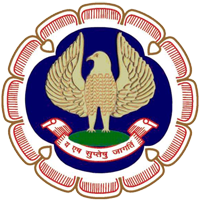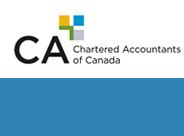
Accounting, also known as accountancy, is the processing of information about economic entities, such as businesses and corporations. Accounting measures the results of an organization's economic activities and conveys this information to a variety of stakeholders, including investors, creditors, management, and regulators. Practitioners of accounting are known as accountants. The terms "accounting" and "financial reporting" are often used as synonyms.
Professional certification, trade certification, or professional designation, often called simply certification or qualification, is a designation earned by a person to assure qualification to perform a job or task. Not all certifications that use post-nominal letters are an acknowledgement of educational achievement, or an agency appointed to safeguard the public interest.

An audit is an "independent examination of financial information of any entity, whether profit oriented or not, irrespective of its size or legal form when such an examination is conducted with a view to express an opinion thereon." Auditing also attempts to ensure that the books of accounts are properly maintained by the concern as required by law. Auditors consider the propositions before them, obtain evidence, and evaluate the propositions in their auditing report.

A financial audit is conducted to provide an opinion whether "financial statements" are stated in accordance with specified criteria. Normally, the criteria are international accounting standards, although auditors may conduct audits of financial statements prepared using the cash basis or some other basis of accounting appropriate for the organization. In providing an opinion whether financial statements are fairly stated in accordance with accounting standards, the auditor gathers evidence to determine whether the statements contain material errors or other misstatements.

The Institute of Chartered Accountants in England and Wales (ICAEW) is a professional membership organisation that promotes, develops and supports chartered accountants and students around the world. As of July 2022, it has over 198,000 members and students in 147 countries. ICAEW was established by royal charter in 1880.

Assurance service is an independent professional service, typically provided by Chartered or Certified Public Accountants or Chartered Certified Accountants, with the goal of improving information or the context of information so that decision makers can make more informed, and presumably better, decisions. Assurance services provide independent and professional opinions that reduce information risk.

Founded in 1904, the Association of Chartered Certified Accountants(ACCA) is the global professional accounting body offering the Chartered Certified Accountant qualification (ACCA). It has 240,952 members and 541,930 future members worldwide. ACCA's headquarters are in London with principal administrative office in Glasgow. ACCA works through a network of over 110 offices and centres in 51 countries - with 346 Approved Learning Partners (ALP) and more than 7,600 Approved Employers worldwide, who provide employee development.

The Institute of Chartered Accountants of India (ICAI) is India's largest professional accounting body under the administrative control of Ministry of Corporate Affairs, Government of India. It was established on 1 July 1949 as a statutory body under the Chartered Accountants Act, 1949 enacted by the Parliament for promotion, development and regulation of the profession of Chartered Accountancy in India.

The Financial Reporting Council (FRC) is an independent regulator in the UK and Ireland based in London Wall in the City of London, responsible for regulating auditors, accountants and actuaries, and setting the UK's Corporate Governance and Stewardship Codes. The FRC seeks to promote transparency and integrity in business by aiming its work at investors and others who rely on company reports, audits and high-quality risk management.

The Canadian Institute of Chartered Accountants (CICA) was incorporated by an Act of the Parliament of Canada in 1902, which later became known as the Canadian Institute of Chartered Accountants Act.

Internal auditing is an independent, objective assurance and consulting activity designed to add value and improve an organization's operations. It helps an organization accomplish its objectives by bringing a systematic, disciplined approach to evaluate and improve the effectiveness of risk management, control and governance processes. Internal auditing might achieve this goal by providing insight and recommendations based on analyses and assessments of data and business processes. With commitment to integrity and accountability, internal auditing provides value to governing bodies and senior management as an objective source of independent advice. Professionals called internal auditors are employed by organizations to perform the internal auditing activity.
The Australian Accounting Standards Board (AASB) is an Australian Government agency that develops and maintains financial reporting standards applicable to entities in the private and public sectors of the Australian economy. Also, the AASB contributes to the development of global financial reporting standards and facilitates the participation of the Australian community in global standard setting. The AASB's functions and powers are set out in the Australian Securities and Investments Commission Act 2001. The AASB uses a conceptual framework to develop and evaluate accounting standards.
The International Accounting Education Standards Board (IAESB) is an independent organisation within the fold of the International Federation of Accountants (IFAC). The board develops guidance to improve standards of education in accountancy. The two main areas of focus are the key elements of accreditation and the requirements of accountants for continuing professional education. The board also sponsors studies or papers about accounting education that promote discussion and debate on accounting education and development issues.
British qualified accountants are full voting members of United Kingdom professional bodies that evaluate individual experience and test competencies for accountants.
In Bangladesh, the profession of accountancy was developed during the British colonial period. The basic requirements for financial reporting by all companies in Bangladesh were provided by the Companies Act of 1994. Today, it is represented by two professional bodies, the Institute of Cost & Management Accountants of Bangladesh (ICMAB) and the Institute of Chartered Accountants of Bangladesh (ICAB).
The chief audit executive (CAE), director of audit, director of internal audit, auditor general, or controller general is a high-level independent corporate executive with overall responsibility for internal audit.

The International Federation of Accountants (IFAC) is the global organization for the accountancy profession. Founded in 1977, IFAC has 180 members and associates in 135 jurisdictions, representing more than 3 million accountants in public practice, education, government service, industry, and commerce. The organization supports the development, adoption, and implementation of international standards for accounting education, ethics, and the public sector as well as audit and assurance. It supports four independent standard-setting boards, which establish international standards on ethics, auditing and assurance, accounting education, and public sector accounting. It also issues guidance to professional accountants in small and medium business accounting practices.
The Zambia Institute of Chartered Accountants (ZICA) is the only professional accountancy body in Zambia. It is the sole organization in Zambia with the right to award the Chartered Accountant designation; and to practice in Zambia, accountants must be registered with ZICA ZICA is a member of the International Federation of Accountants (IFAC). ZICA is also a charter member of the Pan African Federation of Accountants, which was inaugurated on 5 May 2011.

Chartered Professional Accountants of Canada is the national organization representing the Canadian accounting profession through the unification of the three largest accounting organizations: the Canadian Institute of Chartered Accountants (CICA), the Society of Management Accountants of Canada and Certified General Accountants of Canada (CGA-Canada), as well as the 40 national and provincial accounting bodies. It is one of the largest organizations of its type in the world, with over 217,000 Chartered Professional Accountants in Canada and around the world.







